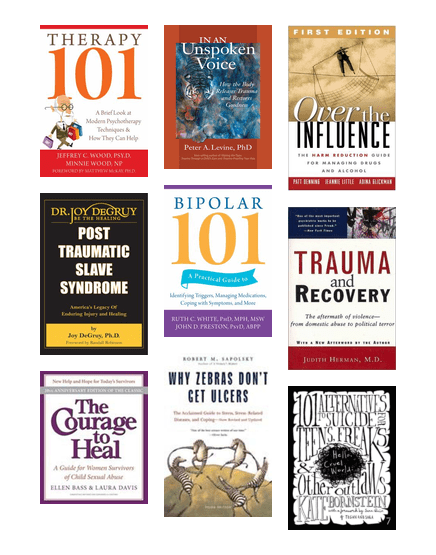In their article on the stigma of being mentally ill, the American Psychiatric Association (APA) states that "more than half of people with mental illness don't receive help for their disorders," often out of fear of consequences like prejudice and mistreatment, losing one's work, livelihood, or important social relationships, all of which are very real possibilities.
Stigma and Media Representation
Some of the stereotypes and prejudices outlined by the APA include the idea that mentally ill people are "dangerous, incompetent, to blame for their disorder, unpredictable," whereas research actually shows that those with mental illness are much likelier to be the victims of violence, abuse, and harassment. The APA also addresses the role played by the media:
"Stigma often comes from lack of understanding or fear. Inaccurate or misleading media representations of mental illness contribute to both those factors. [...] Media representations of people with mental illness can influence perceptions and stigma, and they have often been negative, inaccurate or violent representations. "
Think back: when was the last time you saw a movie or tv show, or read a book with a mentally ill character?
- Were they the villiain?
- Were they portrayed as evil, dangerous, or a burden to those around them?
- Was their mental illness a tragedy, a metaphor, a narrative tool to explore some other aspect of human existence? Or were they just another person in the world, dealing with symptoms and medications right alongside the mundane details of everyday life like getting one's morning coffee?
- What about on the news? How often have you seen mental illness brought up in a news story about a violent person, implying that the two are connected?
Mental illness deserves to be normalized as a part of everyday interaction not only because it's a part of so many of our lived realities, but also because positive, nuanced representation can make such a great impact. Stigma leads to negative effects on recovery, bullying and harassment of mentally ill people, and reduced resources devoted to services related to mental illness, But according to the APA, having contact with or knowing someone with mental illness can reduce that stigma. And so can hearing accounts of mentally ill people's lives and seeing them speak out openly about their experiences.
At the Library
In that spirit, here are a variety of book lists from the library that offer connection, insight, and a place where mental illness is explored with authenticity and kindness.
Memoirs
Our Memoirs Exploring Mental Illness lists includes autobiographical titles whose authors have a various symptoms and disorders, whether formally diagnosed or not. Some of the works listed focus on the author's mental illness, whereas for others it's just one among a variety of themes in the autobiography.
Fiction (including genre fiction)
These literary fiction, fantasy, romance, and science fiction books for adults deal with mentally ill characters in complex ways: while occasionally painful, their lives aren't limited to suffering or tragedy, and they aren't just used as a burden, obstacle, or metaphor by the narrative.
Nonfiction and Self-Help
Finally, our Nonfiction on Mental Illness and Trauma list provides both resources for managing conditions and symptoms, as well as exploration into mental health in our society.







Add a comment to: Mental Health Month: Stigma and Media Representation